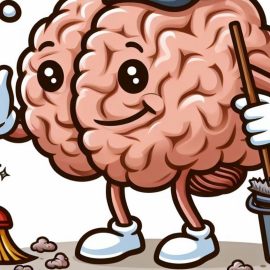

This article is an excerpt from the Shortform book guide to "Eight Dates" by John Gottman, Julie Schwartz Gottman, et al.. Shortform has the world's best summaries and analyses of books you should be reading.
Like this article? Sign up for a free trial here.
What’s the key to building trust in a relationship? What breaks trust in a relationship?
Eight Dates claims that one of the most important topics you can discuss with your partner on a date is trust. Whether trust has been broken before or you want to simply strengthen it, talking to your partner about what trust means to them is a good first step.
Continue reading to learn how to talk about trust on a date.
Talking About Trust
Trust is foundational to a long-lasting relationship. The authors define trust as the conviction that your partner values you and will be there to support you. The goal of this date is to understand your partner’s beliefs about trust and discuss how building trust in a relationship is better for both of you.
(Shortform note: Esther Perel, author of Mating in Captivity, defines trust differently—as a confident engagement with the unknown. Perel argues that trust isn’t necessarily about the belief that your partner will always be there or take care of you, but the confidence that when you and your partner make a mistake or cause harm to one another, you’ll come back together, heal, and move forward. Because of this, she explains that taking risks is one of the best ways for couples to build trust because it allows you to be vulnerable with your partner and creates opportunities for deeper intimacy and shared experiences.)
There are a number of ways you can build—or break—trust in your relationship. The authors argue you can build trust by being vulnerable with your partner, remaining faithful, addressing conflict, offering compassion, and expressing gratitude for your partner. You break trust when you fail to show affection, follow through, tell the truth, or be available when your partner needs you.
(Shortform date: In Crucial Conversations, the authors argue that trust isn’t an either/or proposition where trust either exists or it doesn’t. They suggest that trust is often specific to a situation; you trust someone in some circumstances but not in others. For example, you may trust your partner’s commitment to your relationship, but not their ability to responsibly handle finances.)
Use the following questions to help guide your conversation:
- What did you learn about trust growing up? How do you define trust now?
- Where do we agree on issues of trust? Where do we disagree?
- How can we strengthen trust in our relationship? What do you need from me?
| Understanding Your Relationship to Trust As you discuss trust with your partner, it’s helpful to first have an understanding of your own relationship to trust. In Attached, authors Amir Levine and Rachel Heller explain that your relationship to trust depends on your attachment style. Trust is established in early childhood through a process called secure attachment. When caregivers consistently respond to a child’s needs and provide a safe and nurturing environment, the child develops a secure attachment style, which involves a positive expectation that others will be responsive and trustworthy. In contrast, when caregivers are inconsistent or unresponsive, a child may develop an insecure attachment style, which can lead to difficulty trusting others. This can manifest in adulthood as challenges forming close relationships, fear of rejection or abandonment, or a tendency to rely on others excessively for emotional support. Attachment theory also highlights the role of attachment figures in building and maintaining trust in adult relationships. When people have a secure attachment style, they’re more likely to trust their partners and feel secure in their relationship. However, when people have an insecure attachment style, they may struggle with trust issues in their relationships, particularly when their partners don’t respond to their emotional needs in a consistent and caring manner. |

———End of Preview———
Like what you just read? Read the rest of the world's best book summary and analysis of John Gottman, Julie Schwartz Gottman, et al.'s "Eight Dates" at Shortform.
Here's what you'll find in our full Eight Dates summary:
- The secret to a strong, long-lasting relationship
- Why you and your partner need to make time for weekly dates
- The eight powerful dates and conversations to have at the start of a relationship






